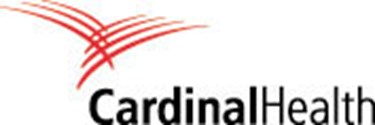Cordis, Medical Products Will Drive Cardinal Health's Momentum
By Jof Enriquez,
Follow me on Twitter @jofenriq

Cardinal Health's medical products business performed strongly in the second quarter, helping offset some of the negative impact on the company's pharmaceutical business, which was hit by competitive generic drug pricing cuts. The medical segment will continue to help drive momentum as the portfolio becomes more integrated, says CEO George Barrett.
Quarterly total revenue was a less-than-expected $33.15 billion, and net income fell less than one percent, compared to the same period one year ago, to $324 million. The pharmaceutical unit's profit dropped 14 percent to $537 million, due to changes in generic pharmaceutical pricing and the loss of a large pharmaceutical distribution partner, according to Thomson Reuters.
However, Cardinal Health's smaller medical products unit grew profit by 50 percent, and increased revenue by 8 percent, due to across-the-board contributions from the company's brand-name products, including Cordis, reports Modern Healthcare.
Johnson & Johnson sold Cordis, a manufacturer of cardiac and endovascular devices, to Cardinal Health in March 2015 for $1.94 billion. The integration of Cordis has allowed Cardinal Health to gain a larger share of the United States and international cardiovascular market. Cordis, along with the rest of the Cardinal Health Brand portfolio, has demonstrated solid growth since the sale.
"We continue to see growth in Cardinal Health Brand products, which as you know includes Cordis. We continue to grow the number of products and product categories in our Cardinal Health Brand, and now offer more than 19,000 SKUs in 110 product families. Our Cordis acquisition is largely on plan, and I'm proud of the way in which our teams have come together around the world during this first year. We feel very confident that we can add value to any system in their interventional cardiology activities," said Barrett.
He added that the company's Cardinal Health at Home business and naviHealth post-acute care management are growing "quite dramatically" to meet the changing demands of the market toward a value-based healthcare environment. These businesses will only become more integrated in the future, and will help Cardinal Health's customers, according to Barrett. Given the success of the Cordis acquisition, especially in Europe and Latin America, Barrett says the company will "not be shy" in looking for similar opportunities.
"You're going to see adding businesses like Cordis, which are going to be higher margin. Then you're going to see us convert our customers to more Cardinal Health Brand products, which is going to increase our margin rates, grow our at Home business, which is growing our margin rates as well as naviHealth. So I think we have a lot of moving parts in Medical that should continue to help us with the momentum on growing our margin rates on that side of the business," said Barrett, according to the Seeking Alpha transcript of the call.
For full year 2017, Cardinal Health expects to see double-digit profit growth versus the prior year for the medical segment, and the pharmaceutical segment profit to be down high-single to low-double digits. The company is most optimistic on the Chinese market, which continues to perform well, and is on track to gain double-digit top and bottom line growth for the full fiscal year.
Barrett is also chairman of the Healthcare Leadership Council (HLC), a coalition of chief executives from all disciplines within American healthcare. When asked on the issues of a probable repeal of the Affordable Care Act and tax reforms, Barrett said he will "make sure our voice is heard" but reiterated that Cardinal Health is "well-positioned," regardless of policy changes.
"You know that many Medical products including some of ours are made outside of the U.S. and related facilities. And so, we just want to make sure that that information is well understood as policies are starting to come through," said Barrett.
